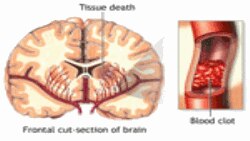The possibility of a stroke can be markedly decreased by controlling risk factors like high blood pressure and others, a Florida doctor said Thursday.
When a person’s blood pressure is too high, the risk of stroke increases, said Dr. Taing Tek Hong, as a guest on “Hello VOA.”
Controlling blood pressure decreases the chances, he said. This can be done through proper diet, which also decreases high cholesterol and other causes of heart disease.
If a person fails at maintaining a proper diet and is unable to exercise, medications are available, the doctor said. But if you take medication for high blood pressure, you will need to take it for the rest of your life.
Excess weight is another risk for men and women, he said, because it leads to unfavorable changes in blood pressure, blood sugar and blood fats, all of which increase the risk of stroke.
Cigarette smoking creates yet another risk, as this can restrict blood flow, including to the brain.
Diabetes also increases the risk, because it causes small blood vessels to close prematurely. If they are close to the brain, they can create small strokes, he said. Good control of blood sugar is important in decreasing the risk of stroke in diabetics.
Medical treatments include the use of aspirin or Clopidogrel, beta-adrenergic antagonists like Propranolol, Atenolol, Labetalol, Carvedilol; calcium channel blockers like Nifedipine, Diltazem, Verapamil; and nitrates such as sublingual nitroglycerin, oral isosorbide dinitrate, and nitroglycerin ointment.
Other treatment can include cholesterol-lowering medications, strict control of blood sugar for diabetics, quitting smoking, moderate consumption of alcohol, and a diet low in fat and salt but high in fruits and vegetables.
Exercise such as walking, bicycling or swimming for 30 minutes every day can also help—60 minutes per day for those who are overweight.





